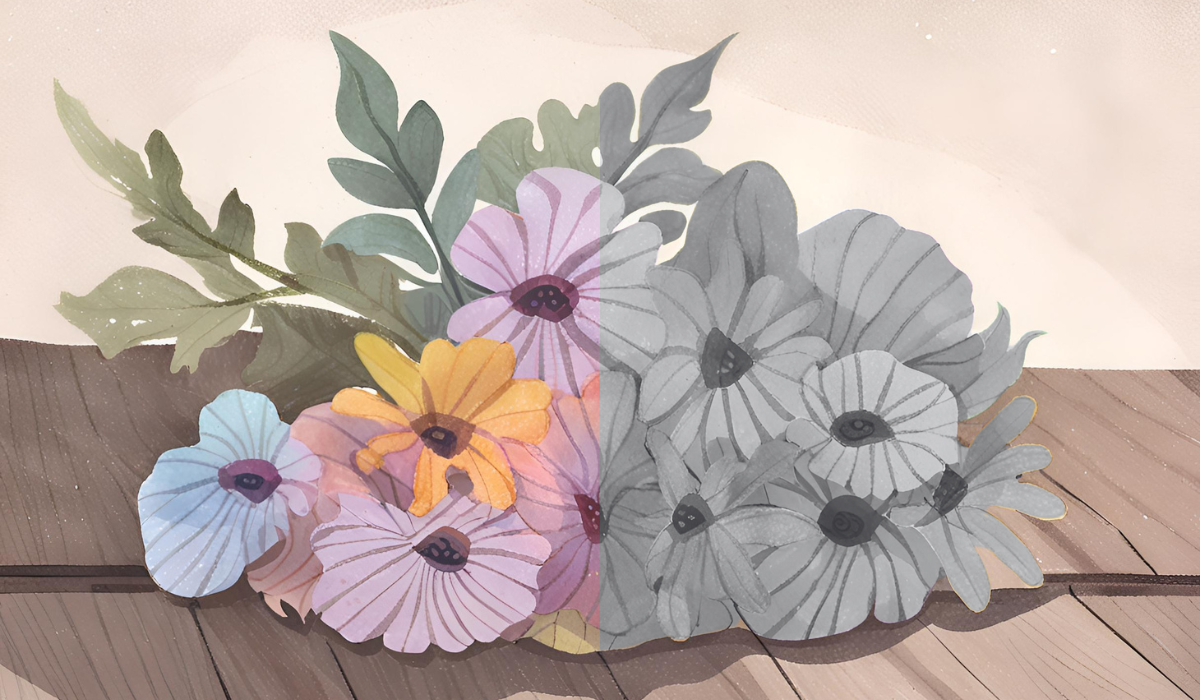Does Mother’s Day Feel Complicated? That’s Okay

“Mother’s Day can hold many truths at once. Love and loss. Joy and longing. Celebration and silence.”
The first tulips always hurt.
“Spring has sprung,” they say faithfully, even when all evidence points to the contrary.
“Warm days are coming, you’ll see!” they declare to bundled-up children on their way to school.
I used to love their gentle assurances, especially when I lived in frigid Chicago and spring seemed distant and improbable.
But those candy-colored blooms announce more than just spring. They signify that Mother’s Day is approaching. And sometimes, the pain of that is too much for my heart to hold.
On those days, I hate tulips.
My mother was my best friend. When she died in 2011, Mother’s Day died in some small way for me as well.
I still had my boys—my three beautiful boys—and their earnest, handmade gifts. Their handmade love. It filled me, it soothed me, and it softened the edges of my mother’s absence.
But still, I dreaded the arrival of Mother’s Day. The advertisements. The social media posts. The smiles of friends at brunch with their living mothers.
My heart would howl.
And then, ten years after my mom’s death, my son Sammy died. Writing those words still feels ungodly. Cruel beyond comprehension. And yet, it is so. The world keeps turning. Tulips keep blooming. Families still gather. Children still make handmade cards. And I—a daughter without a mother, and a mother whose child is no longer here—watch from a different kind of place.
Even now, especially now. It is what nourishes the soil of my life. It is what makes the blooms that do come so vivid, so radiant, so real.
So many people walk through Mother’s Day quietly carrying pain of their own. Sometimes that pain is loud and known. Sometimes it’s hidden beneath a smile. But it’s there—and it matters.
This is the weight that unacknowledged grief can carry.
Having worked with grieving hearts for years, and having walked the road of personal loss myself, I’ve learned that our culture doesn’t make much space for sorrow. Especially not the kind that resurfaces on holidays, in public, or in moments that others expect to be joyful.
But Mother’s Day can hold many truths at once. Love and loss. Joy and longing. Celebration and silence.
So, I let myself grieve. I grieve Sammy the way I loved him and still love him—with huge, fluid freedom. I hold his loss as tenderly and as vigilantly as I held his newborn body. And I hold myself with the same grace and unconditional love my mother gave me.
That means I let myself cry more this time of year. I lie in bed when I need to. I skip my workouts. I ask my husband to bring home dinner. I let my friends know: “This is a hard time for me.”
Sometimes I forget things. Sometimes I’m snappish. Sometimes I cancel plans last-minute. But I remind myself: I’m doing my best. We all are.
And then, slowly, I start to find my way back to ritual. I ask myself: “What can I do today to feel close to my son? What would honor my mother’s memory?”
Sometimes it’s hugging a tree. Sometimes it’s calling a friend. Sometimes it’s crying in my garden, laughing at a memory, or dancing in my kitchen. I grieve with the volume up and the shame down because I know it brings me closer to those I’ve lost. And it brings me closer to myself.
This is not the story we’re taught to tell. In our grief-illiterate culture, days like Mother’s Day are meant to be performed, not felt. Celebrated, not complicated.
But if this Mother’s Day feels heavy for you, I want to offer what I’ve learned.
Let it hurt. You don’t have to smile through it. You don’t have to post a photo. You don’t have to play along. Let yourself feel whatever arises. Rage. Sadness. Longing. Numbness. Even relief. If your mother is gone, you may feel like an orphan—no matter how old you are. If your child is gone, your motherhood may feel invisible. That pain is real. Let it speak.
Tend to your nervous system. Grief isn’t just emotional; it’s physical. Try this: Place one hand on your heart, one on your belly. Breathe slowly. Remind your body that you’re safe. Go outside. Put your feet in the grass. Cry. Humming or rocking yourself can soothe your nervous system. Wrap yourself in a blanket. Turn off the noise. Let your body lead.
Honor them—in your own way. Grief is love with nowhere to go. But ritual gives it a path. Light a candle. Plant something. Make their favorite meal. Donate in their name. Talk to them. Set a place at the table. Keep a signs journal. Whisper to them. The love still lives.
Connect, if and how you can. You’re not alone. So many of us are walking through this day with tender hearts. If you can, reach out. Text someone else who’s grieving. Share a memory. Say their name. And if connection feels like too much—just let someone know how you’re doing. You don’t have to do this day in silence.
If someone you love is grieving this Mother’s Day... Please reach out. The silence hurts more than the grief itself. You don’t need perfect words. You just need to show up.
You might try saying something like this:
“Thinking of you today.”
“I know this day might be hard. I’m here.”
“No pressure to respond—just wanted you to know I haven’t forgotten.”
Avoid fixing. Avoid platitudes. Just be present. Be real.
Mother’s Day will never be simple for some of us. But it can still hold meaning. Not in the way we’re told it should. But in quiet acts of remembrance. In sacred pauses. In love that never dies.
Even on the days when I hate tulips, I remind myself: They bloom for all of us who grieve.
For me.
For my son.
For my mother.
For the ones we carry in our hearts, and for the love that refuses to fade.
From my broken, blooming heart to yours: Happy Mother’s Day.
Dr. Laura Berman is a love and relationship therapist, NYT Bestselling author, and founder of the Grief Healing Collective — an online sanctuary for those navigating loss. Through community, ritual, and embodied healing, the Collective offers gentle, practical support for those learning to live with grief. Learn more at www.drlauraberman.com/griefhealing.
Please note that we may receive affiliate commissions from the sales of linked products.



